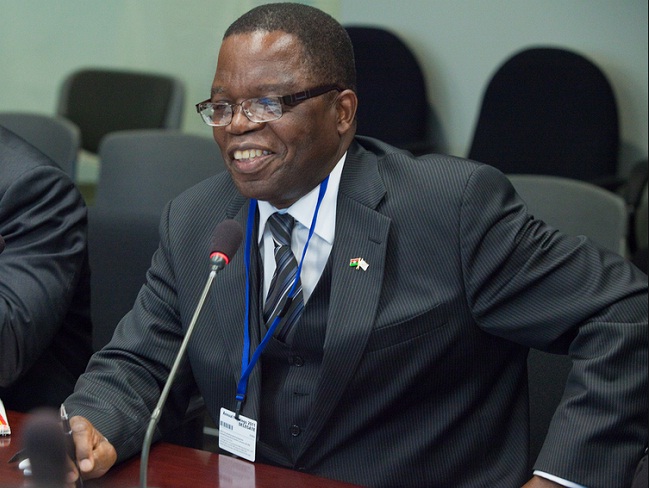Economic commentators in Malawi said President Joyce Banda’s first national budget, presented to Malawi’s parliament Friday, gives the country’s poor nothing to smile about. Malawians had expected the $1.5 billion budget to include measures to help cushion the impact of the recent 50 percent currency devaluation, which has pushed the cost of living to higher levels.
President Joyce Banda’s first budget follows the zero-deficit budget, introduced by the late president Bingu wa Mutharika. He adopted the zero-deficit fiscal plan after donors suspended aid to Malawi over concerns about economic policies, governance and human rights issues. Economic commentators said that budget included punitive taxes imposed on goods and services, and led to a spike in basic commodities prices.
Delivering the budget statement Friday, Malawi Finance Minister Ken Lipenga said the new budget would address these issues but the path to recovery will not be pain free.
“Mr. Speaker, sir, we have made effort to learn lessons in the 2011 financial year,” said Lipenga. “I am committed to address these issues and implement necessary reforms in order to promote transparency and accountability in the use of public finances. We recognize the challenges that we face and that this will not be an easy journey.”
To ease some of pain of Malawians, Lipenga said the government will remove value added taxed on bread, import duties from second hand clothes and medical equipment, and give civil servants a 21 percent salary increase, compared to last year’s 7.5 percent increase.
But local economists and unions criticized the budget for not doing enough soon enough for most Malawians .
The Civil Servants Trade Union said the 21 percent salary increase does not keep pace with the spice in prices for basic goods and services due to the 50% currency devaluation.
For everyone else, David Ngomba, projects officer for the lobbying group Consumers Association of Malawi, said ordinary Malawians will not feel the benefits of this budget for some time LOC498373791 .
“Honestly, what consumers should expect is something that will not cushion the effects of the economy that they are experiencing at the moment. A number of the products’ prices have gone up and they have not been reduced,” said Ngomba. “And, again, the 21 percent increment of the civil servants is something that will not take them along to survive the effect of the austerity measures that have been put in place.”
Friday Jumbe, a renowned economist and former finance minister, said there is nothing in the budget that gives hope to small scale businesses. “What is it in this budget where a normal business person of a small or medium size can claim to benefit? Nothing,” he said.
“There is no statement that gives you comfort that a small player can benefit anything, yet the rhetoric is always big, where we says ‘ooh, let’s go out there and do business’ and that we should support the small scale industry, Jumbe added. “The support is not forthcoming when you see the budgets of this nature coming in the manner it has come”.
Representatives of the Minibus Owners Association of Malawi are angry at the decision to remove taxes on the importation of large buses. They said it could kill the minibus business – which is vital to the transport sector – yet still subject to import duties on its vehicles.
Some of these concerns may be addressed in the next two weeks as parliament debates the budget before voting to pass it.

